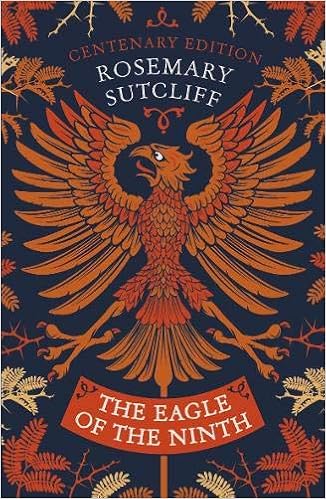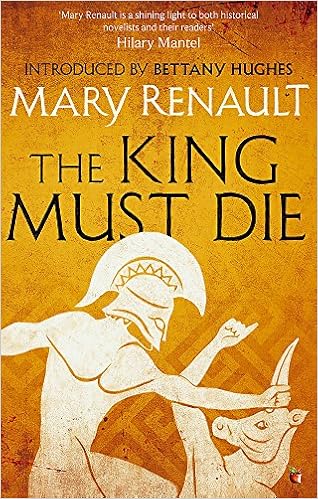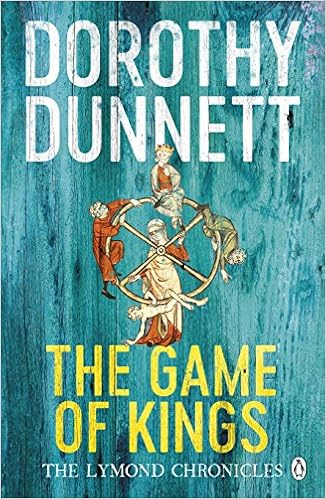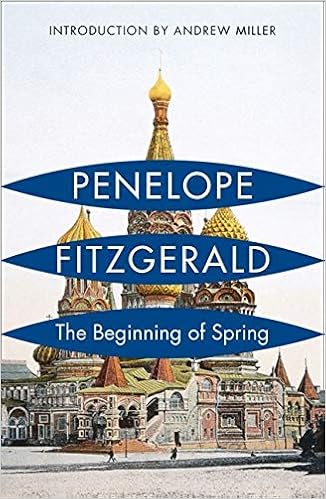Each quarter we ask a best-selling and much loved author to sit in the LoveReading spotlight as our Guest Editor. Their job is to pick five books, these can sit within a genre or theme, or just be particular favourites. You may think that a relatively simple task, but how to pick, how to choose from all those wonderful books out there!
Guy Gavriel Kay is a book world great and a particular favourite of the LoveReading team, his latest novel A Brightness Long Ago was a Liz Robinson Pick of the Month and LoveReading Star Book. He also appeared as our LoveReading August 2019 Author in the Picture. He writes books that sit somewhere between historical and fantasy, another reviewer described them rather perfectly as “historical fiction with a quarter turn to the fantastic”.
I will admit to having the biggest booky crush on Guy as I’ve been reading his books since I was a teen, they sit as favourite reads, and he sits as a favourite author. I wait, very patiently, for each new book to arrive, and then carry it off in triumph. I regularly re-read Guy’s novels, as I’ve become older I may explore and discover the contents in a different way each time I sink within the pages, but these are books that grow with and not away from me.
Guy Gavriel Kay has published fourteen novels which have been translated into 30 languages and have appeared on bestseller lists around the world. He is also the author of the poetry collection, Beyond This Dark House. His most recent work is A Brightness Long Ago. Before beginning his career as a novelist, Kay was retained by the Estate of J.R.R. Tolkien to assist in the editorial construction of The Silmarillion, the first and best-known of the posthumously published Tolkien works. Called to the Bar of Ontario in 1980, he has also been principal writer and associate producer for the CBC’s award-winning crime-drama series, The Scales of Justice. Kay has twice won the Aurora Award, is a multiple World Fantasy Award nominee, and won that award for Ysabel. He also won the Sunburst Award for Under Heaven, and is the recipient of the International Goliardos Prize, presented in Mexico City, for his contributions to the literature of the fantastic. Both Under Heaven and River of Stars won the Prix Elbakin in France for best foreign language speculative fiction work. In 2014 he was invested with the Order of Canada, the country's highest civilian honour. Kay’s authorized website may be found at www.brightweavings.com. He is on Twitter as @guygavrielkay.
Photo credit given with thanks to Ted Davis
***
Guy has gifted us with a poem, and we thank him most sincerely for that. Each time I read Mostly Quiet, it reaches further inside me, squeezing emotions and setting thoughts free to explore. With the greatest of pleasure I’ll now hand you over to the wordsmith himself.
My first published work was poetry and I’ve never stopped writing it. This is about two very dear friends (and dear to each other) who died a few years ago, within a year of each other. It isn’t COVID-driven, but we are products of our times, and it was written and rewritten over the last year, undoubtedly shaped by awareness of losses, and memories of them. I wanted it to be very quiet.
Mostly Quiet
It is mostly quiet here where the two of you lie,
not far from each other but not adjacent, either.
That’s really how it should be. Eddie cared deeply
for some of us but didn’t like too much proximity.
He hugged me only once that I recall,
when my dad died. His father died when he
was thirteen years old. George and I
used to talk of being lucky in our fathers.
I have been lucky in my friends.
Standing beside one grave before walking to the other
I see joggers in the cemetery.
Someone on a bike, someone
walking a dog on a long leash. Autumn
has reached us now: colours, leaves
underfoot, driven to the ground by last night's rain,
although just now there is sunshine in and out
of clouds. People are in your life,
vivid and loved, and then out of your life
for many different reasons. Dying is one.
Dying is one. Another cyclist.
Another woman with another dog.
The wind takes the leaves
and blows them along
the path that leads to the world,
out of the quiet, away from them again.
***
I always have a problem when asked to name my favourite books. I’d have been awful at desert island books — or music, or artworks. They’d have kicked me off the island. When are you asking? Is it Monday or Thursday? Am I on first morning coffee or sipping a cocktail hour Negroni? Have I had a springtime walk or am I gazing bleakly at winter snow? These matter in picking favourites.
Having said that, it helps to narrow towards a type of book and to think in terms of ‘books I’ve loved and think others would’ as opposed to absolutes. So that’s what I’ll do.
I doubt it will surprise anyone who knows me or my work that I’ve always loved historical fiction, from childhood. Indeed, one of my own ‘gateway’ moments as a small boy was when I negotiated the right to take out books from the ‘adult’ section of the River Heights Library in Winnipeg, Canada, where I grew up. I became intimately familiar with the historical fiction section very quickly. Libraries are a treasure house, and I’d been given the combination to the vault…
So, let me offer five historical fiction books I really do love.
 Back when I was not yet released to rampage through the adult stacks of my library, there were still treasures to be found in the ‘Children’s Section.’ Top of my list was Rosemary Sutcliff. I later did read her few adult historical fictions, but for me the essence of her greatness lies in the so-called Young Adult books. Sutcliff almost owned Roman Britain, and then the time when they began to withdraw, exploring. She kindled — actually, she ignited like a pyromaniac — my early passion for books about the past. Her most famous novel is probably The Eagle of the Ninth, about a young officer headed north in Britain at a precarious time for the Empire. He’s doing so in an immensely dangerous attempt to reclaim the lost standard of the Ninth Legion — it was his father’s legion, and it had disappeared in the north, beyond Hadrian’s Wall. Mood, period, place, narrative… what, for a young boy on the Canadian prairie, was there not to fall in love with? Sutcliff is not just for younger people. They aren’t do be allowed all the pleasures.
Back when I was not yet released to rampage through the adult stacks of my library, there were still treasures to be found in the ‘Children’s Section.’ Top of my list was Rosemary Sutcliff. I later did read her few adult historical fictions, but for me the essence of her greatness lies in the so-called Young Adult books. Sutcliff almost owned Roman Britain, and then the time when they began to withdraw, exploring. She kindled — actually, she ignited like a pyromaniac — my early passion for books about the past. Her most famous novel is probably The Eagle of the Ninth, about a young officer headed north in Britain at a precarious time for the Empire. He’s doing so in an immensely dangerous attempt to reclaim the lost standard of the Ninth Legion — it was his father’s legion, and it had disappeared in the north, beyond Hadrian’s Wall. Mood, period, place, narrative… what, for a young boy on the Canadian prairie, was there not to fall in love with? Sutcliff is not just for younger people. They aren’t do be allowed all the pleasures.
 When I was permitted to fare boldly forth into the wider library holdings, I discovered another novelist who would become one of my all-time favourite writers about the past. Again, this one is no closely-held literary secret. Mary Renault is deeply loved by many, though is today not nearly as widely read as she deserves to be. Just as Sutcliff gave me Roman Britain, so did Renault guide me — and so many others — to Classical Greece. As with many (though not all) great novelists, readers can legitimately debate which is her best book. Reading is a dialogue, after all, not a monologue: we bring our own taste, personality, our age and times, the state of our life when we pick up a book … and that has much to do with whether we hate, like, love a novel. I’m going to name what I do think is Renault’s best. The King Must Die is the first of two novels about the mythic figure of Theseus (it can absolutely be read alone), taking him from childhood to the island of Crete and an unforgettable imagining of what Minoan Crete (before 1500 BCE!) might have been like at the height of that culture, including the celebrated bull-dancers. We can’t know, but Renault’s magnificent act of creation lets us imagine it with her, and be wrapped in wonder. It is a beautifully-told story, written in a way that opens a reader up to the idea of the strangeness of the past (more on this later) — while offering characters that are both mythic and profoundly immediate and intense. I don’t say masterpiece often, but I think this book is.
When I was permitted to fare boldly forth into the wider library holdings, I discovered another novelist who would become one of my all-time favourite writers about the past. Again, this one is no closely-held literary secret. Mary Renault is deeply loved by many, though is today not nearly as widely read as she deserves to be. Just as Sutcliff gave me Roman Britain, so did Renault guide me — and so many others — to Classical Greece. As with many (though not all) great novelists, readers can legitimately debate which is her best book. Reading is a dialogue, after all, not a monologue: we bring our own taste, personality, our age and times, the state of our life when we pick up a book … and that has much to do with whether we hate, like, love a novel. I’m going to name what I do think is Renault’s best. The King Must Die is the first of two novels about the mythic figure of Theseus (it can absolutely be read alone), taking him from childhood to the island of Crete and an unforgettable imagining of what Minoan Crete (before 1500 BCE!) might have been like at the height of that culture, including the celebrated bull-dancers. We can’t know, but Renault’s magnificent act of creation lets us imagine it with her, and be wrapped in wonder. It is a beautifully-told story, written in a way that opens a reader up to the idea of the strangeness of the past (more on this later) — while offering characters that are both mythic and profoundly immediate and intense. I don’t say masterpiece often, but I think this book is.
 I was probably too young when I first read Dorothy Dunnett, in the sense that things were winging over my head. At the same time, twelve year old me was smart enough to know it, and to still be mesmerized. I read The Lymond Chronicles, as they were eventually called, when complete, as the last of the six books were coming out. Indeed, I was working near Oxford on the editorial construction of Tolkien’s The Silmarillion when Checkmate, the final book in Dunnett’s series, was released. I told Christopher Tolkien I’d be taking two or three days off to read it. I bought the first copy sold in Blackwell’s in Oxford, waiting by the door for the store to open that morning, I remember.
I was probably too young when I first read Dorothy Dunnett, in the sense that things were winging over my head. At the same time, twelve year old me was smart enough to know it, and to still be mesmerized. I read The Lymond Chronicles, as they were eventually called, when complete, as the last of the six books were coming out. Indeed, I was working near Oxford on the editorial construction of Tolkien’s The Silmarillion when Checkmate, the final book in Dunnett’s series, was released. I told Christopher Tolkien I’d be taking two or three days off to read it. I bought the first copy sold in Blackwell’s in Oxford, waiting by the door for the store to open that morning, I remember.
The Lymond books, for me, are unmatched in many ways. Research, period feel, intensely vivid characters, wit, high drama, scintillating dialogue. The first book, The Game of Kings, is notoriously a challenge to get into. Fair warning. Dunnett uses an elliptical style and obscure quotes and references to a purpose. Her protagonist is simply smarter than everyone he deals with — and she puts the reader in that puzzle-him-out position, too. It is very effective, once one settles in. The series is anchored in Scotland in the 16th century, but covers an enormous amount of ground beyond: France, Malta, Constantinople, even the Russia of Ivan the Terrible. I was fortunate enough to meet her, by correspondence and in person, and as a young writer I learned valuable lessons, seeing her graciousness to readers. It was an earlier time, before social media, but grace was still grace.
 One strand of historical fiction, not the dominant one, but a hugely interesting one, focuses on trying to make readers aware of the sheer strangeness of the past. It is a tricky, challenging approach: many readers do prefer 21st century-style characters dressed in Roman or Viking or Tudor clothing. Someone like the fine novelist Cecelia Holland refused to do this (try her The Kings In Winter, or Until the Sun Falls). A more recent book, Harvest, by Jim Crace, was my own ‘novel of the year’ pick when it came out. It was shortlisted for the Man Booker Prize in 2013, and it won the IMPAC Dublin Award, so I am obviously not alone in admiring it so much. Harvest is set in a village called simply The Village. No precise historical time period or geographical location are offered. We are … somewhere and somewhen in England, apparently the 17th century. We share in the villagers’ general ignorance about the wider world. And that ignorance, the vulnerability of it, becomes central to the story — which is about a period when land owners came to realize that there was more money and less uncertainty in sheep than in tenants and farming, with all the obvious implications for the farmers. The writing is exquisite, and though the story is dark it is not without redemption, and there is so much illumination and reward for a reader here. It’s a lament for a lost way of life, but also an alert as to the inevitability, and the consequences, of change. A brilliant novel.
One strand of historical fiction, not the dominant one, but a hugely interesting one, focuses on trying to make readers aware of the sheer strangeness of the past. It is a tricky, challenging approach: many readers do prefer 21st century-style characters dressed in Roman or Viking or Tudor clothing. Someone like the fine novelist Cecelia Holland refused to do this (try her The Kings In Winter, or Until the Sun Falls). A more recent book, Harvest, by Jim Crace, was my own ‘novel of the year’ pick when it came out. It was shortlisted for the Man Booker Prize in 2013, and it won the IMPAC Dublin Award, so I am obviously not alone in admiring it so much. Harvest is set in a village called simply The Village. No precise historical time period or geographical location are offered. We are … somewhere and somewhen in England, apparently the 17th century. We share in the villagers’ general ignorance about the wider world. And that ignorance, the vulnerability of it, becomes central to the story — which is about a period when land owners came to realize that there was more money and less uncertainty in sheep than in tenants and farming, with all the obvious implications for the farmers. The writing is exquisite, and though the story is dark it is not without redemption, and there is so much illumination and reward for a reader here. It’s a lament for a lost way of life, but also an alert as to the inevitability, and the consequences, of change. A brilliant novel.
A.S. Byatt wrote once that she could make a good case for Penelope Fitzgerald as the best 20th century novelist in the English language in the post-war period. I don’t tend to think in such terms but … I get it. Fitzgerald — especially, but not only, her last four books — is an absolute favourite of mine, and through rereads, too. (Rereading can be a joy, and dangerous sometimes, too.) She started very late in life as a novelist, which will be encouraging for some.
 Her best book is generally — and rightly, I think — considered to be The Blue Flower, but my favourite, for the humour, tenderness, unexpectedly wry delights it offers, is her novel set 1913 in Russia, The Beginning of Spring. It has, for a protagonist, a beleaguered English printing shop owner in a wonderfully evoked Moscow. His wife has just left him and their three small children, without warning, to return to England. The year is significant: we are on the eve, but not yet the immediate arrival, of the Revolution, and the Great War. There is, among other joys here, a scene in a birch wood at night that is simply unforgettable, because of how mysterious it is. Indeed, the drowsy child allowed to come into the forest is told that ‘she'll understand in time what she's seen.’ She doesn’t, then, nor do we, entirely. It haunts in good part because of that, a small miracle of writing.
Her best book is generally — and rightly, I think — considered to be The Blue Flower, but my favourite, for the humour, tenderness, unexpectedly wry delights it offers, is her novel set 1913 in Russia, The Beginning of Spring. It has, for a protagonist, a beleaguered English printing shop owner in a wonderfully evoked Moscow. His wife has just left him and their three small children, without warning, to return to England. The year is significant: we are on the eve, but not yet the immediate arrival, of the Revolution, and the Great War. There is, among other joys here, a scene in a birch wood at night that is simply unforgettable, because of how mysterious it is. Indeed, the drowsy child allowed to come into the forest is told that ‘she'll understand in time what she's seen.’ She doesn’t, then, nor do we, entirely. It haunts in good part because of that, a small miracle of writing.
I think, by way of a closing remark, that this is true of many of the great books. We understand them, or understand them differently, over time — as we live, as the books live within us.


.jpg)













Comments (0)
Leave A Reply
You must be logged in to post a comment.